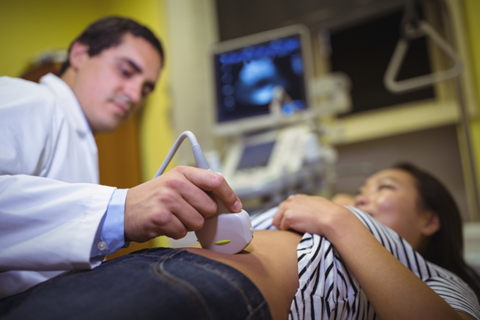A test to diagnose heart diseases in the unborn baby at the earliest possible time
Timing: Between 19-21 weeks of pregnancy
In approximately 1 in 100 pregnancies, the baby might have a heart condition requiring specialist care or surgery.
Purpose of the Fetal Cardiac Scan
- To check whether all the heart chambers and blood vessels are functioning well
- To monitor and assess blood flow and general health
- To identify the major heart problems that require surgery in the first year of life
This test may not detect small holes or a few problems with the heart valves.
Fetal Cardiac Scan: How to Prepare?
- No special preparation is needed before the fetal cardiac scan
- It is better to avoid using any lotions or creams on your belly before the test
- Carry your medical records if you have had any abnormal results from previous ultrasound
What Happens During the Fetal Cardiac Scan?
- Your doctor will apply gel to your abdomen area
- The doctor can view pictures of your baby’s heart by passing an ultrasound probe
- In the case of endovaginal ultrasound, a small ultrasound transducer is placed inside the vagina to obtain pictures of your baby’s heart
- Duration of the scan: 5 – 20 minutes
FAQ: Fetal Cardiac Scan
Are There Any Risks with Fetal Cardiac Scan?
There are no known risks with fetal cardiac scan because it uses ultrasound technology which does not involve radiation.
Fetal Cardiac Scan: Who Needs It?
- Previous child with heart disease
- Family history of heart diseases
- Any suspicion of cardiac abnormality in a routine pregnancy scan
- Use of medications that may damage a developing baby’s heart
- Genetic disorders
- Twin pregnancy
- Diseases and complications in mother (Diabetes)

